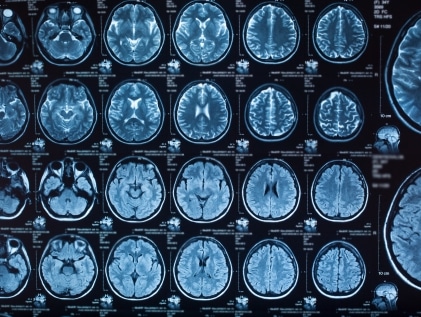As people are living longer lives, Alzheimer’s disease, the most common type of dementia, is becoming more prevalent. Today, more than five million Americans are living with Alzheimer’s, and it is the sixth leading cause of death in the United States. Alzheimer’s typically strikes seniors over the age of sixty-five. Of the five million, though, approximately five percent experience what is known as early-onset Alzheimer’s and may begin noticing symptoms in their forties or fifties. Though scientists are still unsure as to what causes Alzheimer’s, certain factors may increase one’s risk of developing it.
Alzheimer’s disease can be broken down into seven very specific stages, but there are three main stages that we’ll discuss today:
Early-stage Alzheimer’s
Also referred to as mild, those in the early-stage of Alzheimer’s may still be living their regular lives while noticing symptoms of forgetfulness that are often associated with the normal aging process. Possible indicators of early-stage Alzheimer’s include forgetting people’s names, difficulty with short-term memory, misplacing important items, mismanaging money, and compromised executive functioning skills. It is best to consult a doctor for help determining if your loved one is in this early-stage of Alzheimer’s or simply experiencing “senior moments.”
Middle-stage Alzheimer’s
The middle-stage, or moderate stage, can last for many years and is typically the longest stage of the disease. Those in this stage become less aware of their decline and often require a higher level of care than before. This is also the stage in which one’s long-term memory and the ability to make appropriate decisions become affected. Moderate stage symptoms include forgetting personal information, increased agitation and wandering, changes in sleep patterns and confusion in the late-afternoon, difficulty managing personal care, and bouts of paranoia and delusion. Changes in behavior and personality are typically the person’s way of communicating that they are in distress or have a need that is not being met. With assistance and patience, though, your loved one can actively participate in daily activities and social situations.
Late-stage Alzheimer’s
Symptoms become more severe in the late-stage of Alzheimer’s, and individuals typically require a high level of care as their control over bodily functions declines. Individuals in this stage may lose their ability to walk, sit, and even eat independently. Communication becomes more difficult, sometimes nonexistent, and your loved one may become unaware of their surroundings. Those in the late-stage are also more susceptible to pneumonia, skin infections, and flu. During this stage, individuals may benefit from activities that stimulate the senses, including listening to music, receiving gentle touches, and looking at photos of family.
It is necessary to build a support system of family and friends, trusted healthcare workers, and caregivers to assist in providing your loved one with comfort and dignity as their Alzheimer’s progresses. For more information on how to seek out help, visit the Alzheimer’s Association.



